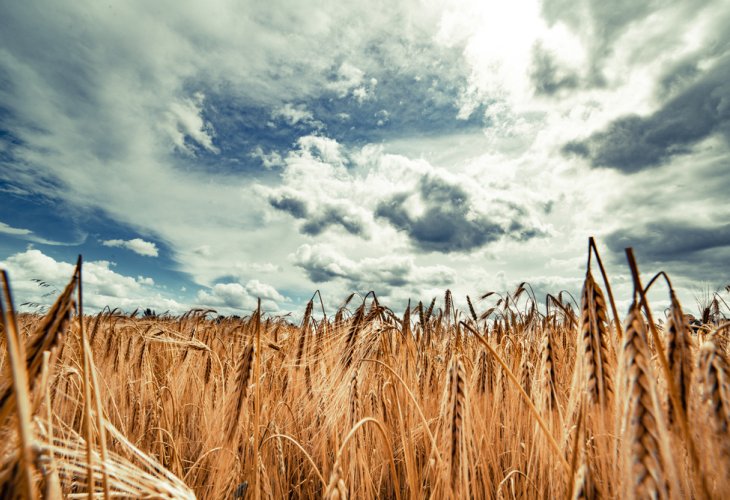Issues in the Bible
The Law of Chadash: Why New Grain Is Forbidden Until After Passover
The prohibition on eating new grain before the Omer offering — and how this ancient law still affects modern kosher supervision, agriculture, and global food today
 (Photo: Shutterstock)
(Photo: Shutterstock)In Jewish law there is a term called “Chadash” — literally, new grain, and it’s especially relevant in the days following Passover.
We read about it in the Torah, in Parashat Emor: “You shall not eat bread, roasted grain, or fresh kernels until this very day, until you bring the offering of your God; it is a statute forever throughout your generations in all your dwellings.” (Vayikra 23:14)
This command refers to the days after Passover when one may not eat bread, roasted grain, or parched kernels (similar to today’s roasted wheat snacks) until the Omer offering was brought in the Temple — on the third day of Passover, the 16th of Nisan.
The Omer offering, made from barley, would permit all new grain for consumption.
What Happens Without a Temple?
What do we do today, when there is no Temple and no Omer sacrifice?
The Sages taught that the day itself — the 16th of Nisan, now serves as the point of permission. Even without the sacrifice, the arrival of that date allows the new grain to be eaten.
However, before that day, the grain is forbidden under the law of Chadash — “new grain.”
This means that any grain planted after Passover cannot be eaten until the next Passover has passed. Anything harvested within that year remains forbidden until it “has passed over the festival.”
Why It’s Usually Not a Problem in Israel
In the Land of Israel, this law rarely causes difficulty. By nature, Israel’s agricultural cycle follows a clear pattern:
Sowing takes place in early winter.
Harvesting takes place after Passover.
That means the grain harvested in summer has already “passed over” the festival and is therefore permitted.
What About the Rest of the World?
In other countries, the situation can be very different. Because of the global climate and international trade, grains and barley are grown and harvested at different times of year. For instance, in South America, grain is harvested during Tevet–Shevat (December–February) — months before Passover.
According to Jewish law, that grain is still considered “Chadash” and cannot be eaten until after Passover — whether as imported wheat or in products like beer and other grain-based foods.
Modern kosher certification agencies carefully monitor and regulate imported grain to ensure compliance with the laws of Chadash.
A Historical Challenge — and Modern Solutions
In earlier centuries, Jews living outside of Israel found it nearly impossible to observe this law strictly. Many communities relied on more lenient halachic opinions that Chadash does not apply outside the Land of Israel.
However, some of the greatest rabbinic authorities — including the Vilna Gaon (the Gra), were very strict about it.
Today, thanks to modern technology and international oversight, it’s far easier to ensure that grain and its byproducts meet the standard.
As a result, high-level kosher certifications now routinely supervise products for compliance with the laws of Chadash.

